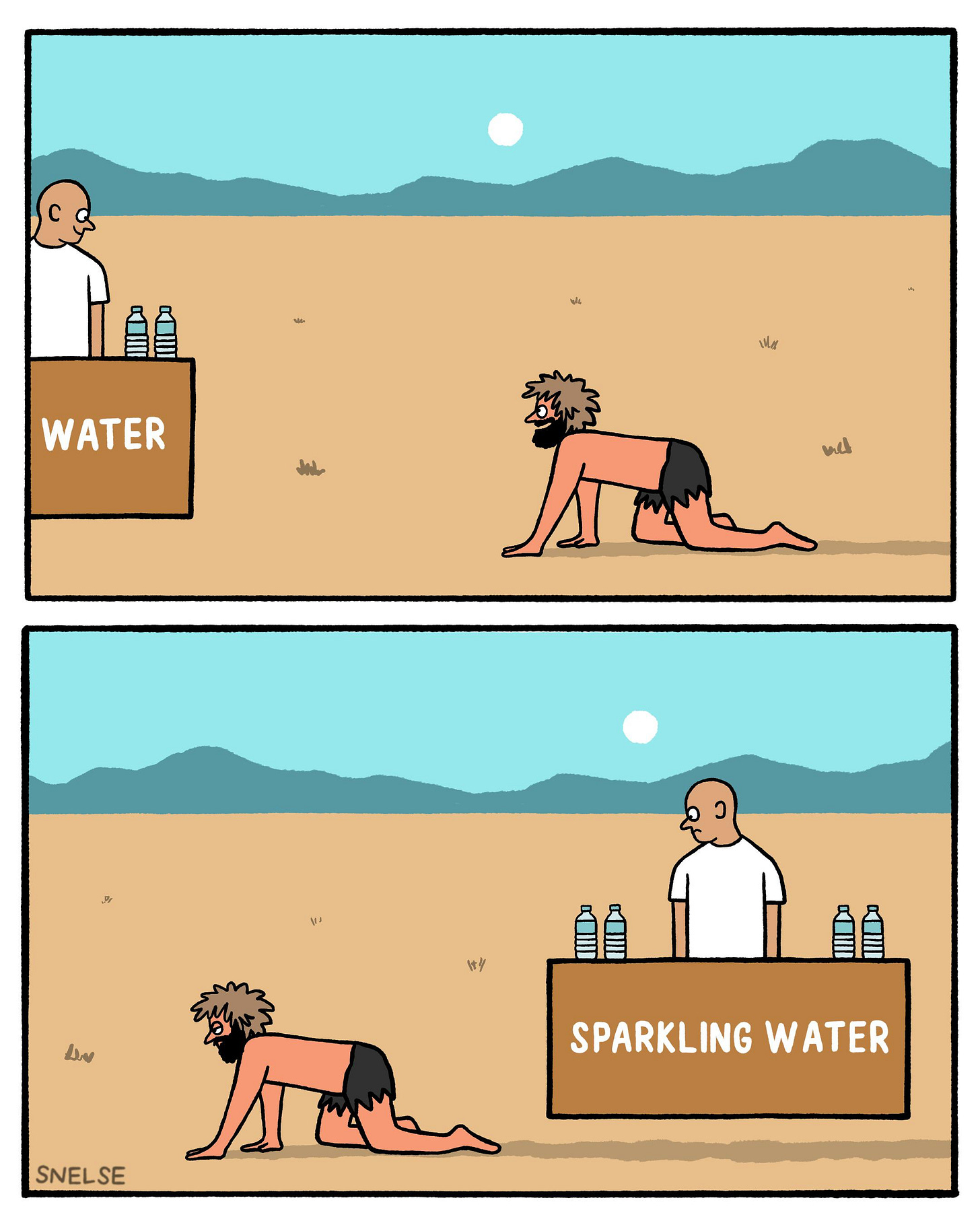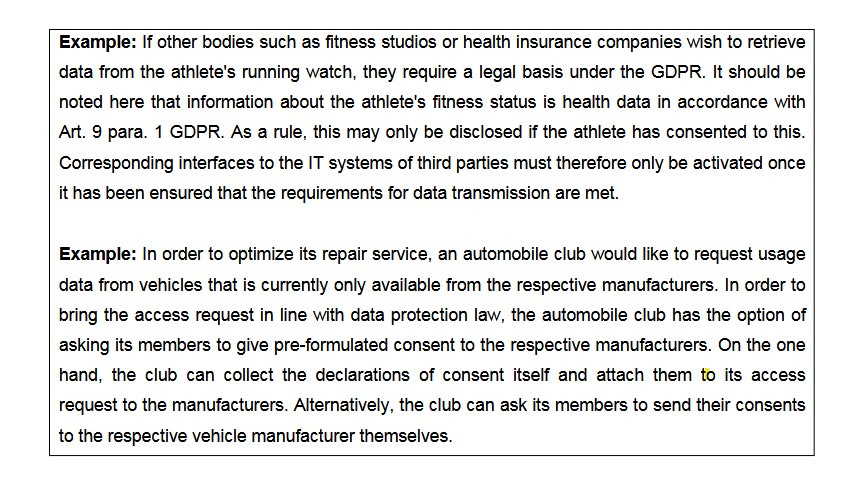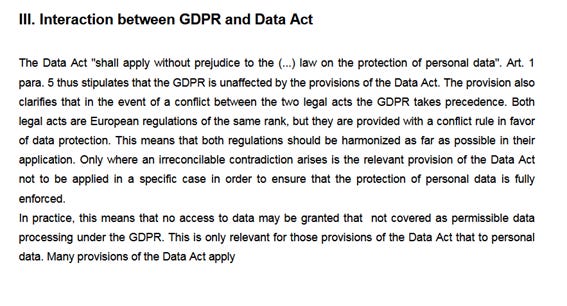When I read Darío’s message saying “the bottled water games begin,” I thought, “Uh-oh, water.”
When I ran into him in the Mercadona line with his Vichy Catalán bottles (only H2O remaining), I thought, “Gulp.”
When I got in line with two 1.5-liter bottles of Aquarius to get through the rush and fifteen people bolted toward the isotonic drinks section, I said to myself, “We’re on the brink of something serious.”
You’re now getting the survival backpack too, right?
You are reading ZERO PARTY DATA. The newsletter on current affairs, technopolies, and law by Jorge García Herrero and Darío López Rincón.
In the few spare moments this newsletter leaves us, we enjoy solving complex issues related to personal data protection. If you’ve got one of those, give us a little wave. Or contact us by email at jgh(at)jorgegarciaherrero.com.
🕮 News from Mundodato 🌍
"Mom, mom, LOOK: no psychologist needed!!" “With ChatGPT it’s already done.” Good article from the NYT. Even better is Lilian Edwards' commentary on the same topic.
As bearer of the flame of the LOLPD Awards (which shall never, ever die out), I was very interested to learn that the Big Brother Awards exist too, covering the same kind of topics, but without the same level of cheekiness.
If you're only going to read one link in this newsletter, let it be this one: We Need To Rewild The Internet.
“The story of German scientific forestry transmits a timeless truth: When we simplify complex systems, we destroy them, and the devastating consequences sometimes aren’t obvious until it’s too late.”
“The more proprietary solutions are built and deployed instead of collaborative open standards-based ones, the less the internet survives as a platform for future innovation.”
“Rewilding the internet is more than a metaphor. It’s a framework and plan. It gives us fresh eyes for the wicked problem of extraction and control, and new means and allies to fix it. It recognizes that ending internet monopolies isn’t just an intellectual problem. It’s an emotional one. It answers questions like: How do we keep going when the monopolies have more money and power? How do we act collectively when they suborn our community spaces, funding and networks? And how do we communicate to our allies what fixing it will look and feel like?”
Does Gemini access your activity on its platform? Google says no. Curtis Poe says yes.
The Dorito moment
The shocking part of this article, "6 Things You Can Do to Secure Your Phone as You Reenter the Country After Traveling", is that it's aimed not at foreigners entering the U.S., but at Americans coming back home.
Do you want to have Elon Musk’s child? But without anyone knowing it’s his and strictly following ALL his instructions for $25 million and $100,000 a month? Answer the second question first!
💀Death by Meme🤣
📄 Very-coffee-drenched data documents ☕️
New digestum of interesting rulings on data matters from the CJEU. Although dated July 2024, it was just released fresh from the oven on April 28. It’s a compilation of the court's greatest hits, so don’t be surprised to find Fashion ID, Nowak, Jehovan Todistajat, or Lindqvist.
A deeply coffee-drenched data document with a self-explanatory title: Reflections on the potential for international protection of human rights in the age of neurotechnology, by Miguel Ángel Elizalde Carranza.
Privacy by design by Apple: the promo with Pedro Pascal dancing in Apple’s headphones was cool, but not nearly as impressive as this application of differential privacy published on their blog. [SPOILER DELETED]… like in The Last of Us. Remember when it used to be the other way around, and video games were the cinema/TV industry's underdog?
In my kind of personal crusade for the simultaneous punishment of spam (ePrivacy) and the illegal data collection that enables it (GDPR), I was delighted to see the ruling by the (Federal) German Supreme Court declaring that Article 95 of the GDPR does not prevent the simultaneous application of both sets of rules. If this interests you, the key paragraphs are 43–48. Here’s my translation of the last one:
48.- “Nevertheless, Article 95 of the GDPR does not render Article 6(1)(f) of the GDPR inapplicable in this context, because Article 13(3) of Directive 2002/58/EC does not constitute a provision in respect of which the General Data Protection Regulation imposes ‘additional obligations’ on natural or legal persons. On the contrary: Article 13(3) of Directive 2002/58/EC lays down, with regard to unsolicited messages for direct marketing purposes, stricter requirements than those of the General Data Protection Regulation. Whereas the Regulation also applies general provisions in this regard, Article 13(3) of the Directive provides that Member States must take appropriate measures to ensure—free of charge for subscribers—that, except in the cases referred to in paragraphs 1 and 2, unsolicited messages for direct marketing purposes sent without the consent of the subscribers concerned or addressed to subscribers who do not wish to receive such messages are not permitted; the choice between these options must be governed by national law. This regulatory mandate addressed to national legislators ultimately leads to an extension of the obligation of data controllers to refrain from processing personal data without explicit consent. Therefore, Article 6(1)(f) of the GDPR and Article 13(3) of Directive 2002/58/EC are, in principle, concurrently applicable.”
.- Blair Attard-Frost ha publicado la documentación de sus dos cursos de IA governance and policy para la Universidad de Toronto.
.- The Hamburg Data Protection Authority has released a short document (because 15 pages is short these days) on the intersection of the Data Act and the GDPR. It’s not getting much attention due to the brighter spotlight on the AI Act, but it will be directly applicable starting in September. The most interesting part is the practical examples regarding personal data that illustrate each section of new obligations introduced by the Data Act (the most noteworthy are those about data from fitness wristbands and cars). Also, we have the rule of GDPR primacy in case of conflict. Shared by Luis Montezuma in his English version, and thanks to Sergi Ariño for pointing us to the doc.
🤖Robots.txt or the AI stuff
FRIA in the design and development of AI models, by Núria Pedrós Ramos.
New post on applied AI from Citizen8: What do the RIA's prohibited purposes have to do with micropayments?. Packed with legal analysis, applied psychology context, and a European Commission wild card that might not be as imminent as claimed.
A super curious “cheat-sheet” from Stanford University to explain transformer architecture in LLMs. I’m linking the Spanish version, but the original will be more useful to advanced readers.
Interesting commentary on the tangled overlap of roles between the RIA (provider/deployer) and the GDPR (controller/processor) by Vadym Honcharenko, featuring a chart by Isabel Barberá.
.- Another interesting (Did I say interesting? Essential!) paper with a self-explanatory title: RealHarm: A Collection of Real-World Language Model Application Failures.
Paper of the week
This one, by Tea Mustac: Data Altruism by Default: An Alternative to Consent for Personal Data Processing in Machine Learning.
“This article is about carving out an exception for certain types of data processing conducted for the development of AI systems. All in the attempt to allow the development of high-quality AI systems while striking an appropriate balance between the developers of such systems and the data subjects providing the data for their development.”
Our two cents
The Spanish Data Protection Agency (AEPD) kindly invited us to a meeting of “communicators” to discuss its Strategic Plan and to hear suggestions and contributions. We attended from home, and miss the gathering:
A pity, because that team could well win another European Championship…
🙄 Da-Tadum-bass
If you think someone might like—or even find this newsletter useful—feel free to forward it.
If you miss any document, comment, or bit of nonsense that clearly should have been included in this week’s Zero Party Data, write to us or leave a comment and we’ll consider it for the next edition.










